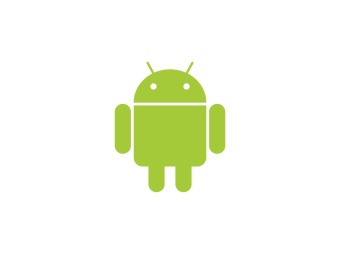10 Ideas To Spark Health Care Change
 What does the future hold for other industries? We can use these ideas as a springboard in our medicine culture.
What does the future hold for other industries? We can use these ideas as a springboard in our medicine culture.
A recent article from the online and print magazine Inc. titled: "10 Cool New Tech Ideas to Help You Market Your Business" showcases many innovative approaches that businesses are utilizing to engage their customers. While I think that these ideas are worth viewing from the marketing perspective, I think there is also great value in changing the perspective to view these ideas in terms of medicine and health care.
Specifically, how can we embrace these visionary ideas to help transform medicine towards a brighter future? Let's dive right in:
1) Facial recognition: imagine pulling out your iPhone or Android and taking a facial recognition photo and sending it to your doctor via your EHR platform. The software could read your facial expressions, wrinkles, and blemishes and compare this to a facial photo from 6 weeks or 6 months ago. Do you have difficulty sleeping (dark circles under your eyes), are you more stressed than usual (deeper wrinkle set) or are you getting too much sun (deeper skin blemishes)? The potential here is enormous.
2) Hyper Targeting: imagine being able to make recommendations to patients based upon pre-determined factors such as age, fitness level, diagnosis, medicine, supplements, etc. The software for this type of process already exists--we would just need to tweak it to make it work for health issues. So, patient Jane who shares characteristics with patient Mary could receive updates providing ideas for cooking, exercises, book choices, etc. This would not only personalize Jane's experience but also have the potential to improve her outcome as a patient.
3) Eavsdropping Apps: maybe we should rephrase this one as Preference Apps: allow patients to tell us about their lifestyle choices by what they focus on. Again, we could use the EHR as a platform where the patient would allow access to her smartphone apps, book, food, exercise preferences and we could then gain better insight into how the patient lives and walks. We could then make better holistic recommendations to her regarding all aspects of her life. As we know, health is more about our choices than anything else.
4) Augmented Reality: I have written about this before...I truly think that medicine and health will embrace the gaming of our society and incorporate virtual health/ medicine in a gaming type of structure. Doctors and patients will be able to interact in a meaningful way via a Sims like game-style approach. I'm excited to see this come to fruition.
5) Mobile: Codes and Spot Targeting: At first glance this one does not seem to fit into a future of medicine model, but I think we can be creative and start incorporating these Quick Response (QR) codes onto prescription meds and health related products. Maybe a patient can scan the code to learn about the side effects of medicine or be taken to a link to a forum where people are using this same medicine? Not sure, but there are many possibilities with this technology.
6) Video: the other day my kids and I were waiting outside in the car while my wife mailed some packages--we sent each other video texts back and forth to amuse each other while we all waited. We can do the same with patients--sending them quick, relevant and timely text messages could mean the world to them.
7) Incentives and Virtual Currency: we are seeing a thrust of different games and Apps that allow users to "win" points to be used elsewhere. We can do the same in medicine. We already see how well the Wii fitness games have pushed us in the same direction. We can take this several steps further where patients who play these games get points towards supplement purchases, coupons off medicines or office visits, etc.
8) Social analytics: We need this in medicine to help us get a sense of how well we are reaching out to our patients/ clients. The faster we adopt the approach that seeks to reward physicians based upon how well they communicate with patients, the better. We have the tools for this, but are lacking in the will right now.
9) Web: this one is fairly obvious....we all have websites, but how can we interact with our patients better and make the web experience more valuable to each of them? This will be a perpetual challenge for time to come.
10) Deals: our patients are consumers and the sooner we create a practice environment that embraces this notion, the better. Who isn't looking for a deal? In medicine we tend to shy away from this mentality as we don't want to be too salesy, but the more confidence we have in the product we are selling, the less we are actually selling. In health and medicine we have been focused to acutely on the medicines themselves as the prescriptions, but the better product is the connections with our patients. So why not create better deals to help you connect with your patients?
I am sure that you can take these ideas and run with them in more expansive ways than I have. Change often occurs faster when we take advantage of "outsider" ideas and perspectives. We are all here because we are seeking much more than the routine medicine has shown us. These ideas can serve as a spark to help get you going.
 Email This Article tagged:
Email This Article tagged:  Health Care Reform,
Health Care Reform,  Medical Applications,
Medical Applications,  Physician Career Change |
Physician Career Change |  Sep 22, 10:00 AM
Sep 22, 10:00 AM 






